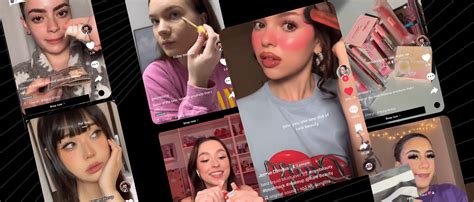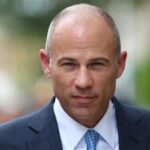
A TikTok influencer known as @Frugalisten, reportedly identified as Bonnie Rodriguez, was filmed weeping outside TikTok’s Culver City, California headquarters after reports surfaced suggesting a potential nationwide ban of the social media platform. The emotional display, captured in a video that has since gone viral, underscores the anxiety and uncertainty many content creators are experiencing amid growing regulatory pressures on TikTok.
Rodriguez’s tearful plea, posted on both TikTok and Instagram, shows her expressing dismay at the prospect of losing her primary source of income and community engagement. “I am trying to be brave right now, but it is really hard,” she stated in the video, adding, “TikTok is my full-time job. It’s how I support my family.” The video quickly garnered millions of views, sparking a wave of reactions ranging from sympathy to criticism.
The potential ban stems from growing concerns in the United States and other countries regarding TikTok’s ties to the Chinese government and the potential for data security breaches and censorship. Lawmakers have cited national security risks as the primary driver behind proposed legislation that could effectively outlaw the app if its parent company, ByteDance, does not divest its ownership.
The incident highlights the significant economic impact a TikTok ban could have on a vast network of influencers, small business owners, and content creators who rely on the platform for their livelihoods. It also raises broader questions about the future of social media regulation and the balance between national security concerns and economic freedom.
Rodriguez, who creates content focused on financial literacy and frugal living, is one of many influencers who have built substantial followings and revenue streams on TikTok. Her emotional response reflects the deep dependence many creators have developed on the platform, which has become a dominant force in the digital economy. The potential loss of this platform represents not only a financial setback but also a disruption to their established communities and personal brands.
The video of Rodriguez’s emotional outburst sparked a diverse range of reactions online. While many expressed empathy and understanding for her situation, others criticized her perceived sense of entitlement and dependence on a single platform. Some commentators suggested that influencers should diversify their income streams and not rely solely on TikTok, while others defended her right to express her concerns about a potential economic hardship.
The proposed ban on TikTok has been a subject of intense debate in Washington D.C. and across the country. Proponents of the ban argue that TikTok poses a significant national security risk due to its potential to be used by the Chinese government for espionage or propaganda purposes. They point to China’s National Intelligence Law, which requires Chinese companies to cooperate with state intelligence agencies, as evidence of the potential threat.
Opponents of the ban argue that it would infringe on the First Amendment rights of millions of Americans who use the platform to express themselves and connect with others. They also contend that a ban would harm American businesses and content creators who rely on TikTok for advertising and revenue generation. Some critics have also questioned the effectiveness of a ban, arguing that it could be easily circumvented through the use of VPNs or other technologies.
The Biden administration has taken a more cautious approach to the TikTok issue than the Trump administration, which previously attempted to ban the app through executive orders. The current administration is reportedly exploring alternative solutions, such as requiring ByteDance to implement stricter data security measures and allow independent audits of its algorithms. However, the possibility of a ban remains on the table if these measures are deemed insufficient to address the national security concerns.
The potential ban on TikTok has also raised concerns about the broader implications for the future of the internet and the global digital economy. Some observers fear that a ban could set a precedent for other countries to restrict access to foreign-owned social media platforms, leading to a more fragmented and less open internet. This could stifle innovation and limit the free flow of information across borders.
The situation surrounding TikTok highlights the complex challenges of regulating social media in the 21st century. Governments are grappling with how to balance national security concerns, economic interests, and the protection of free speech rights in the digital age. As social media platforms continue to evolve and play an increasingly important role in society, these challenges are likely to become even more pressing.
The emotional response of influencers like Rodriguez underscores the human cost of these policy debates. For many content creators, TikTok is not just a platform for entertainment; it is a source of income, community, and personal fulfillment. The potential loss of this platform represents a significant disruption to their lives and livelihoods.
The future of TikTok in the United States remains uncertain. The outcome of the ongoing legislative and regulatory battles will have far-reaching implications for the social media landscape, the digital economy, and the relationship between technology and national security. As the debate continues, it is important to consider the diverse perspectives and potential consequences of any action taken.
The incident involving @Frugalisten also highlights the growing trend of influencers becoming increasingly vocal about political and social issues. As social media platforms have become more integrated into everyday life, influencers have gained significant influence over public opinion. They are increasingly using their platforms to advocate for causes they believe in and to hold policymakers accountable. This trend is likely to continue as influencers become more aware of their power and potential to shape the world around them.
The broader context surrounding TikTok includes a series of legislative efforts aimed at addressing concerns about foreign-owned social media platforms. The RESTRICT Act, for example, is a bipartisan bill that would give the U.S. government broad authority to ban or restrict technology products from countries deemed to be adversaries. While the bill does not specifically name TikTok, it is widely understood to be targeted at the platform.
The RESTRICT Act has faced opposition from some civil liberties groups, who argue that it could be used to censor online speech and stifle innovation. They also raise concerns about the lack of transparency and due process in the bill’s enforcement mechanisms. The debate over the RESTRICT Act highlights the tension between national security concerns and the protection of civil liberties in the digital age.
The potential ban on TikTok has also sparked a debate about the role of social media platforms in shaping public discourse. Critics argue that TikTok’s algorithm can promote harmful content, such as misinformation and hate speech. They also raise concerns about the platform’s potential to be used for political manipulation.
Proponents of TikTok argue that the platform provides a valuable space for creativity, self-expression, and community building. They also point to the platform’s efforts to moderate content and combat misinformation. The debate over TikTok’s content moderation policies highlights the ongoing challenges of balancing free speech with the need to protect users from harmful content.
The situation surrounding TikTok is a complex and evolving issue with no easy solutions. It requires a careful balancing of national security concerns, economic interests, and the protection of civil liberties. As the debate continues, it is important to consider the diverse perspectives and potential consequences of any action taken.
The viral video of Rodriguez’s emotional response serves as a reminder of the human impact of these policy decisions. For the millions of people who rely on TikTok for their livelihoods and communities, the potential ban represents a significant disruption to their lives. Their voices should be heard in the ongoing debate about the future of the platform.
The long-term implications of the TikTok debate extend beyond the platform itself. It raises fundamental questions about the future of the internet, the role of government regulation, and the balance between national security and individual freedoms. These are issues that will continue to shape the digital landscape for years to come.
The rise of TikTok has also coincided with a broader shift in the way people consume and create content online. Short-form video has become increasingly popular, and TikTok has emerged as a dominant player in this space. The platform’s algorithm is highly effective at delivering personalized content to users, which has contributed to its rapid growth and widespread appeal.
The success of TikTok has also inspired other social media platforms to adopt similar features. Instagram, for example, has launched Reels, a short-form video format that directly competes with TikTok. YouTube has also invested heavily in Shorts, its own short-form video platform. The competition among these platforms is driving innovation and shaping the future of online video.
The potential ban on TikTok could have significant implications for the broader social media landscape. It could create opportunities for other platforms to gain market share, but it could also lead to a more fragmented and less competitive market. The long-term effects of a ban are difficult to predict, but they are likely to be significant.
The ongoing debate about TikTok also raises questions about the responsibility of social media platforms to protect user data and privacy. Critics argue that TikTok’s data collection practices are too intrusive and that the company is not doing enough to safeguard user information. Proponents of TikTok argue that the company has implemented robust data security measures and that it is committed to protecting user privacy.
The issue of data privacy is a growing concern for users of all social media platforms. Many people are becoming more aware of how their data is being collected and used, and they are demanding greater control over their personal information. Social media companies are under increasing pressure to be more transparent about their data practices and to provide users with more options for managing their privacy.
The future of social media regulation is likely to be shaped by the ongoing debate about TikTok. Policymakers are grappling with how to balance the benefits of social media with the need to protect national security, user privacy, and free speech. The decisions they make will have a profound impact on the digital landscape for years to come.
The story of @Frugalisten’s emotional response to the potential TikTok ban is a microcosm of the broader challenges and anxieties surrounding the platform. It highlights the human cost of policy decisions and the importance of considering the diverse perspectives of all stakeholders. As the debate continues, it is crucial to approach the issue with nuance, understanding, and a commitment to finding solutions that serve the best interests of all Americans.
The debate surrounding TikTok also underscores the increasing importance of digital literacy and critical thinking skills. In an era of misinformation and disinformation, it is essential for individuals to be able to evaluate the credibility of online sources and to make informed decisions about the information they consume. Social media platforms have a responsibility to promote digital literacy and to help users develop the skills they need to navigate the complex online world.
The potential ban on TikTok is just one example of the many challenges facing the digital economy. As technology continues to evolve, policymakers will need to adapt their regulatory frameworks to address new issues and to ensure that the digital economy remains open, competitive, and innovative. This will require a collaborative effort involving government, industry, and civil society.
The emotional response of @Frugalisten also highlights the importance of mental health and well-being in the digital age. The constant pressure to create content and maintain a strong online presence can take a toll on mental health. Social media platforms have a responsibility to provide resources and support to help users manage their mental health and well-being.
The future of TikTok in the United States remains uncertain, but one thing is clear: the platform has had a profound impact on the social media landscape and the digital economy. The ongoing debate about TikTok raises important questions about national security, data privacy, free speech, and the role of government regulation. These are questions that will continue to shape the digital world for years to come.
The incident involving @Frugalisten is a reminder that behind every policy debate, there are real people whose lives are affected. Their voices deserve to be heard, and their concerns should be taken seriously. As policymakers grapple with the complex issues surrounding TikTok, it is essential to remember the human impact of their decisions.
The debate surrounding TikTok also highlights the need for greater international cooperation on issues related to technology and the digital economy. As social media platforms operate across borders, it is important for countries to work together to address common challenges and to ensure that the digital world remains open, secure, and inclusive.
The potential ban on TikTok is a complex issue with no easy solutions. It requires a careful balancing of competing interests and a commitment to finding solutions that serve the best interests of all stakeholders. As the debate continues, it is important to approach the issue with nuance, understanding, and a willingness to compromise.
The story of @Frugalisten’s emotional response to the potential TikTok ban is a reminder that social media is not just a platform for entertainment; it is also a source of income, community, and personal fulfillment for millions of people. Their voices deserve to be heard, and their concerns should be taken seriously.
The future of TikTok in the United States remains uncertain, but the platform’s legacy is already clear. It has revolutionized the way people create and consume content online, and it has had a profound impact on the social media landscape and the digital economy. The ongoing debate about TikTok will continue to shape the digital world for years to come.
Frequently Asked Questions (FAQ):
Q1: Why is TikTok facing a potential ban in the United States?
A1: The potential ban stems from national security concerns related to TikTok’s parent company, ByteDance, which is based in China. U.S. lawmakers and government officials worry that the Chinese government could potentially access user data or influence content on the platform, posing a threat to national security. They cite China’s National Intelligence Law, which compels Chinese companies to cooperate with state intelligence agencies, as a key reason for their apprehension.
Q2: What are the main arguments against banning TikTok?
A2: Arguments against a ban primarily focus on First Amendment rights, economic impact, and the potential for circumvention. Critics argue that a ban would infringe on the free speech rights of millions of Americans who use TikTok to express themselves and connect with others. They also point to the economic harm a ban would inflict on American businesses and content creators who rely on TikTok for advertising and revenue generation. Furthermore, some argue that a ban could be easily circumvented through the use of VPNs or other technologies, rendering it ineffective.
Q3: How would a TikTok ban affect influencers and content creators like @Frugalisten?
A3: A ban would significantly impact influencers and content creators who rely on TikTok as their primary source of income and community engagement. It would disrupt their established revenue streams, personal brands, and connections with their audience. Many influencers have built their careers around TikTok, and a ban would force them to find alternative platforms and rebuild their followings, potentially leading to financial hardship.
Q4: What alternatives are being considered besides a complete ban of TikTok?
A4: The Biden administration is exploring alternatives to a complete ban, such as requiring ByteDance to implement stricter data security measures and allow independent audits of its algorithms. This approach aims to address the national security concerns while allowing TikTok to continue operating in the United States under tighter regulations. The government is also considering options that would ensure user data is stored and processed in the U.S.
Q5: What is the RESTRICT Act, and how does it relate to the potential TikTok ban?
A5: The RESTRICT Act is a bipartisan bill that would grant the U.S. government broad authority to ban or restrict technology products from countries deemed to be adversaries. While the bill doesn’t explicitly name TikTok, it’s widely understood to be targeted at the platform. The RESTRICT Act aims to address national security concerns by providing a legal framework for restricting access to technologies that could pose a threat. However, it has faced opposition from civil liberties groups who fear it could be used to censor online speech and stifle innovation.









